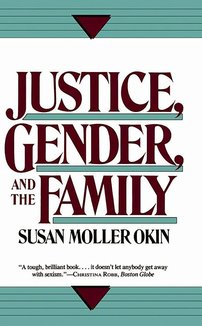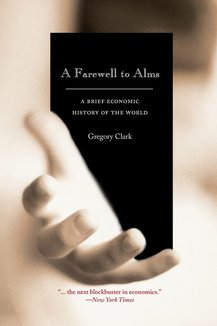Recommended Books

Justice, Gender, And The Family
Author:
Susan M Okin
ISBN 13:
978-0465037032
In the first feminist critique of modern political theory, Okin shows how the failure to apply theories of justice to the family not only undermines our most cherished democratic values but has led to a major crisis over gender-related issues.
Find on:
 Amazon
Amazon

Political Order and Political Decay: From the Industrial Revolution to the Globalization of Democracy
Author:
Francis Fukuyama
ISBN 13:
978-0374535629
The second volume of the bestselling landmark work on the history of the modern state Writing in The Wall Street Journal , David Gress called Francis Fukuyama's Origins of Political Order "magisterial in its learning and admirably immodest in its ambition." In The New York Times Book Review , Michael Lind described the book as "a major achievement by one of the leading public intellectuals of our time." And in The Washington Post , Gerard DeGrott exclaimed "this is a book that will be remembered. Bring on volume two." Volume two is finally here, completing the most important work of political thought in at least a generation. Taking up the essential question of how societies develop strong, impersonal, and accountable political institutions, Fukuyama follows the story from the French Revolution to the so-called Arab Spring and the deep dysfunctions of contemporary American politics. He examines the effects of corruption on governance, and why some societies have been successful at rooting it out. He explores the different legacies of colonialism in Latin America, Africa, and Asia, and offers a clear-eyed account of why some regions have thrived and developed more quickly than others. And he boldly reckons with the future of democracy in the face of a rising global middle class and entrenched political paralysis in the West. A sweeping, masterful account of the struggle to create a well-functioning modern state, Political Order and Political Decay is destined to be a classic.
Find on:
 Amazon
Amazon

A Farewell to Alms: A Brief Economic History of the World (The Princeton Economic History of the Western World)
Author:
Gregory Clark
ISBN 13:
978-0691141282
Why are some parts of the world so rich and others so poor? Why did the Industrial Revolution--and the unprecedented economic growth that came with it--occur in eighteenth-century England, and not at some other time, or in some other place? Why didn't industrialization make the whole world rich--and why did it make large parts of the world even poorer? In A Farewell to Alms , Gregory Clark tackles these profound questions and suggests a new and provocative way in which culture--not exploitation, geography, or resources--explains the wealth, and the poverty, of nations. Countering the prevailing theory that the Industrial Revolution was sparked by the sudden development of stable political, legal, and economic institutions in seventeenth-century Europe, Clark shows that such institutions existed long before industrialization. He argues instead that these institutions gradually led to deep cultural changes by encouraging people to abandon hunter-gatherer instincts-violence, impatience, and economy of effort-and adopt economic habits-hard work, rationality, and education. The problem, Clark says, is that only societies that have long histories of settlement and security seem to develop the cultural characteristics and effective workforces that enable economic growth. For the many societies that have not enjoyed long periods of stability, industrialization has not been a blessing. Clark also dissects the notion, championed by Jared Diamond in Guns, Germs, and Steel , that natural endowments such as geography account for differences in the wealth of nations. A brilliant and sobering challenge to the idea that poor societies can be economically developed through outside intervention, A Farewell to Alms may change the way global economic history is understood.
Find on:
 Amazon
Amazon